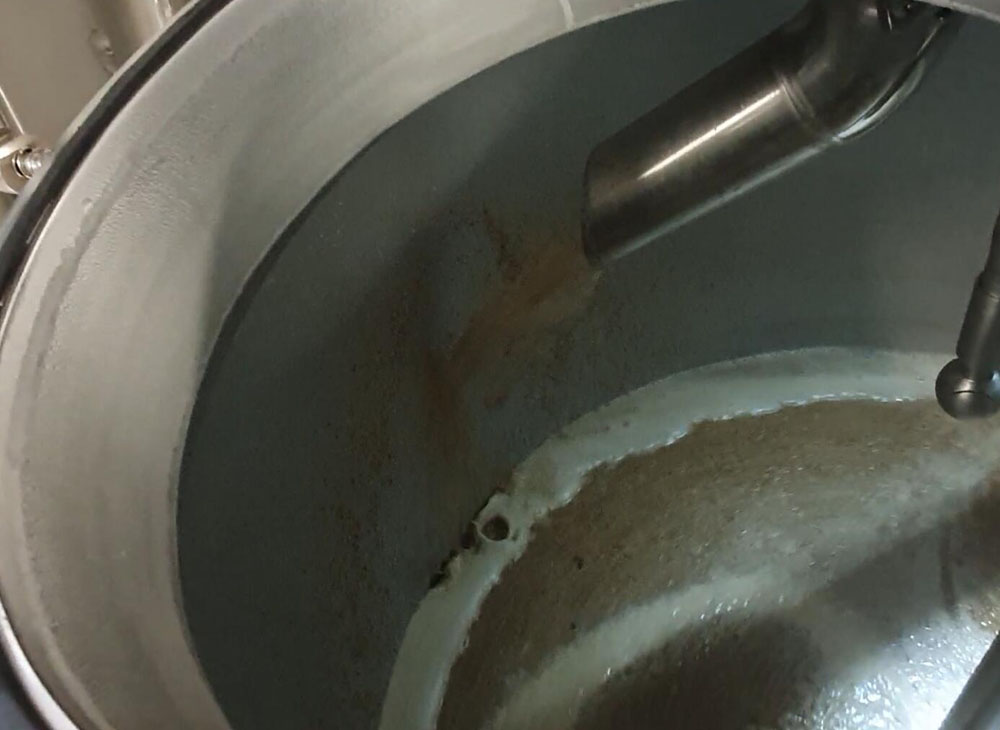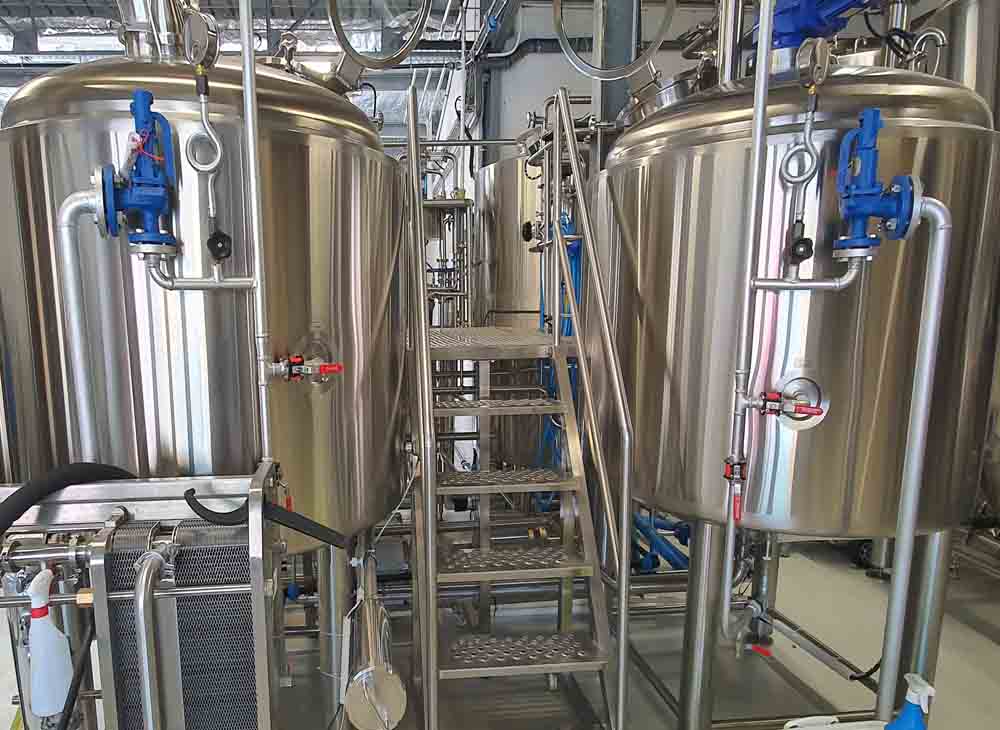Water and Mash pH in a brewery
- Jun 08, 2021
- 60
- tiantai
A lot should be considered when you plan to build your own brewery like brew tech, brewery equipment configuration, beer machines, conical fermenters, conical fermenter, fermenter conical, fermenter beer, conical fermentor, brewery equipment cost and price, find a location for brewery install, license and regulation of brewery. This article column is specially to answer some common question during brewing.
If you are an all-grain brewer, the most important thing to worry about is mash pH. Now let us check why and how to achieve the right pH.

Water chemistry for brewing is a complex topic, which is why entire books have been written about water and brewing. Unfortunately, many of these books assume you have a good knowledge of chemistry, along with microbiology and brewing. Assuming you have access to a “reasonably good” water source, you should not have to do much to your water to use it to brew beer. Most municipal water in the United States can be used right out of the tap with no adjustment. If, however, you have a well or other source with particularly hard or soft water, then you can purchase bottled water from your grocery store and use that instead. Interestingly, extract brewers can use distilled water for their brewing because all the minerals needed for brewing are already in the malt extract. When the maltster created your malt extract he/she mashed grains and then concentrated the wort down by removing the water, which means the ideal set of ions for brewing are already in the concentrated malt.
If you are an all-grain brewer with a “good” water source, the most important thing to worry about is mash pH. The proper mash pH has a number of positive effects on your beer—improving both the flavor and stability of the finished beer. Mash pH is simply the pH of the mixture of water and grains in the mash tun. You can best find it by measuring it with a pH meter or pH test strips. Ideally, you want a mash pH of 5.2–5.6 when you mix the water and grains.
You might recall from high school chemistry class that pure distilled water has a pH of 7.0, but most municipal water sources have a higher (slightly alkaline) pH above 7.0, due to minerals they pick up from ground and surface sources. Grains, in contrast, are acidic, meaning they will lower the pH of the water/grain mixture. Dark roast malts are very acidic and will have the largest effect, while pale malts are only slightly acidic. So when we mix our slightly alkaline water with our acidic grains, we get a pH that is often in the range of 5.0–7.0. That will depend on how alkaline the water was to start with, how much acid the water itself can absorb (which is measured by the water’s residual alkalinity), and how much dark vs. light malt we use.Since we want to get the mash pH down to 5.2–5.6, we often need to use additional acid to drive it down further. This is particularly true for light beers, which don’t have enough acidic dark malts to reach the desired range. For a homebrewer, this means adding small amounts of lactic acid, phosphoric acid, or acidulated malt to the mash until you get the pH down to the range you need. Lactic acid is probably the most easily found in an average homebrew store. So to summarize: start with a good “drinkable” water source and start your mash. Use a pH meter or high-quality pH strips to measure the actual pH of your mash. Finally, if needed, add small amounts (typically only a few ounces/milliliters total) of lactic acid to bring the mash down to the 5.2–5.6 range and then continue brewing your beer.
If you are planning to build your own brewery. TIANTAI Brewery equipment could help you answer your questions and supply brewery equipment. We supply 2-150HL complete beer brewing equipment including malt milling equipment, brew houses equipment, beer conical fermenters /fermentation tank/beer fermentor, brite beer tanks, beer bottling machine,beer canning machine, beer kegging machine, hopping machine, yeast propagation equipment. We also supply all auxiliary brewery systems like steam heating pipe and valves, water treatment, filter, air compressor etc. Everything in brewery are all in our list.
If you are an all-grain brewer, the most important thing to worry about is mash pH. Now let us check why and how to achieve the right pH.

Water chemistry for brewing is a complex topic, which is why entire books have been written about water and brewing. Unfortunately, many of these books assume you have a good knowledge of chemistry, along with microbiology and brewing. Assuming you have access to a “reasonably good” water source, you should not have to do much to your water to use it to brew beer. Most municipal water in the United States can be used right out of the tap with no adjustment. If, however, you have a well or other source with particularly hard or soft water, then you can purchase bottled water from your grocery store and use that instead. Interestingly, extract brewers can use distilled water for their brewing because all the minerals needed for brewing are already in the malt extract. When the maltster created your malt extract he/she mashed grains and then concentrated the wort down by removing the water, which means the ideal set of ions for brewing are already in the concentrated malt.
If you are an all-grain brewer with a “good” water source, the most important thing to worry about is mash pH. The proper mash pH has a number of positive effects on your beer—improving both the flavor and stability of the finished beer. Mash pH is simply the pH of the mixture of water and grains in the mash tun. You can best find it by measuring it with a pH meter or pH test strips. Ideally, you want a mash pH of 5.2–5.6 when you mix the water and grains.
You might recall from high school chemistry class that pure distilled water has a pH of 7.0, but most municipal water sources have a higher (slightly alkaline) pH above 7.0, due to minerals they pick up from ground and surface sources. Grains, in contrast, are acidic, meaning they will lower the pH of the water/grain mixture. Dark roast malts are very acidic and will have the largest effect, while pale malts are only slightly acidic. So when we mix our slightly alkaline water with our acidic grains, we get a pH that is often in the range of 5.0–7.0. That will depend on how alkaline the water was to start with, how much acid the water itself can absorb (which is measured by the water’s residual alkalinity), and how much dark vs. light malt we use.Since we want to get the mash pH down to 5.2–5.6, we often need to use additional acid to drive it down further. This is particularly true for light beers, which don’t have enough acidic dark malts to reach the desired range. For a homebrewer, this means adding small amounts of lactic acid, phosphoric acid, or acidulated malt to the mash until you get the pH down to the range you need. Lactic acid is probably the most easily found in an average homebrew store. So to summarize: start with a good “drinkable” water source and start your mash. Use a pH meter or high-quality pH strips to measure the actual pH of your mash. Finally, if needed, add small amounts (typically only a few ounces/milliliters total) of lactic acid to bring the mash down to the 5.2–5.6 range and then continue brewing your beer.
If you are planning to build your own brewery. TIANTAI Brewery equipment could help you answer your questions and supply brewery equipment. We supply 2-150HL complete beer brewing equipment including malt milling equipment, brew houses equipment, beer conical fermenters /fermentation tank/beer fermentor, brite beer tanks, beer bottling machine,beer canning machine, beer kegging machine, hopping machine, yeast propagation equipment. We also supply all auxiliary brewery systems like steam heating pipe and valves, water treatment, filter, air compressor etc. Everything in brewery are all in our list.




